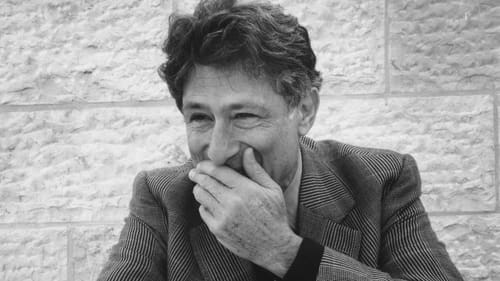Edward Said
Nacimiento : 1935-11-01, Jerusalem, British Mandate of Palestine
Muerte : 2003-09-24

himself
Edward Said's wife and daughter telling a stories and scenes of his own life.

Himself
Organizado por Woody Harrelson, actor y activista dos veces nominado al Oscar, Ethos levanta la tapa de una caja de Pandora de problemas sistémicos que garantizan el fracaso en casi todos los aspectos de nuestras vidas; del medio ambiente a la democracia y nuestra propia libertad personal: desde terribles conflictos de intereses en la política hasta el poder corporativo no regulado, a un medio en manos de conglomerados masivos, y un complejo industrial militar que prácticamente posee nuestros representantes. Con entrevistas de algunos de los principales pensadores actuales y material fuente de los mejores realizadores de documentales de nuestro tiempo, Ethos examina y desenreda estas relaciones complejas, y ofrece una solución, ¡una manera simple pero poderosa de cambiar este sistema!

Self
Documentary filmmaker Makoto Sato offers this reflection on the life and career of Edward Said, the deeply influential literary and cultural critic, Columbia University academic, and outspoken advocate for displaced Palestinians, of whom he was one. Exploring the landscapes of Said's childhood and how they influenced his philosophy, this film features rare footage of Said and interviews with many of his colleagues, including Noam Chomsky.

Edward Said was one of the great contemporary intellectuals of our time and a prominent spokesperson for the Palestinian cause. Shortly before his death in 2003, a French film crew spent several weeks with him and his family. The result is this intimate documentary that offers Said's reflections on how the experience of exile shaped the central ideas, the work and the struggles of this famous academic and activist. Speaking of his background, Said once told a journalist, "My sense of exile has been lifelong -- it's a question of articulating it," Selves and Others features the Said speaking about his nomadic childhood and his views on Eastern identity in the West and how the city of New York balances tradition with a sense of constant change.

Prominent Columbia University English and Comparative Literature professor Edward Said was well known in the United States for his tireless efforts to convey the plight of the Palestinian people, and in this film shot less than a year before his death resulting from incurable leukemia, the author of such books as {-Orientalism}, {-Culture and Imperialism}, and {-Power, Politics, and Culture} discusses with filmmakers his illness, his life, his education, and the continuing turmoil in Palestine. Diagnosed with the disease in 1991, Said struggled with his leukemia throughout the 1990s before refraining from interviews due to his increasingly fragile physical state. This interview was the one sole exception to his staunch "no interview" policy, and provides fascinating insight into the mind of the man who became Western society's most prominent spokesman for the Palestinian cause.

Edward Said
For Palestinian expatriate Edward Said, the return to his homeland amounted to a painful inquiry into his past. This program captures the interconnection between Said's personal recollections and the shared memory of the Palestinian people. Far from ignoring the contemporary realities of the Middle East, Said's perspective relates the ruins of history to the complacent and destructive policies of present-day governments, and delivers a powerful articulation of the weaknesses of the Oslo accords. His intellectual legacy provides valuable insight into the circumstances of the second intifada, as well as the faint steps toward peace that have followed. A BBCW Production.

Himself
Edward Said's book ORIENTALISM has been profoundly influential in a diverse range of disciplines since its publication in 1978. In this engaging (and lavishly illustrated) interview he talks about the context within which the book was conceived, its main themes and how its original thesis relates to the contemporary understanding of "the Orient." Said argues that the Western (especially American) understanding of the Middle East as a place full of villains and terrorists ruled by Islamic fundamentalism produces a deeply distorted image of the diversity and complexity of millions of Arab peoples.

Self - Presenter

Self
Edward Said, critic, tells his story and the story of Palestine.

Its main focus is on the plight of the Palestinians which can be seen as the most enduring residue of the modern encounter between the Arabs and the West. Edward Said traces the course of European involvement with the Near East via the Crusades to Napoleon's campaign in Egypt and the French and English entrepreneurs, adventurers and empire builders who came in his wake.

Writer
Its main focus is on the plight of the Palestinians which can be seen as the most enduring residue of the modern encounter between the Arabs and the West. Edward Said traces the course of European involvement with the Near East via the Crusades to Napoleon's campaign in Egypt and the French and English entrepreneurs, adventurers and empire builders who came in his wake.







